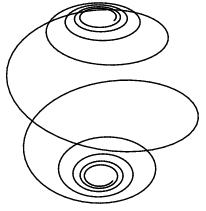stories
Why the world needs wildcrafting…
By Toni Hiatt
Wildcrafting is a practice integrating local ecological knowledge, family and land history, conscious harvesting, land stewardship, activism, and storytelling all into one lovely practice. Practice may be an understatement, for Wildcrafting is a way of complete being, a framework by which to exist in the world. It is art. It is science. It is spirituality.
In July, I along with a group of strangers soon to become friends, embarked on a beautiful journey into Wildcrafting. Wildcrafting was a term I had overheard a few times in past years, mostly during the summers I spend treeplanting where my fellow planters and I will occasionally experiment in harvesting plants or mushrooms we find on cutblocks, sometimes attempting to make teas, smoking mixes, or meals. I equated it to the act of foraging, of gathering raw materials from nature, but I never fully understood how culturally encompassing the practice of wildcrafting is, though the word has always tickled a special spot in my heart.
Perhaps it is the intrigue of these two words, Wild and Craft placed side by side. When I think of what’s Wild, I imagine rugged landscapes, places that are chaotic, mysterious, unknoweable, untamable. And then there’s Craft, a word pertaining to a fine specialization in something, an honing of an artistic expression, an ability to render, to capture. Both these words have a potent charge to them, yet fascinatingly also have certain oppositional qualities. Each time I heard the term ‘Wildcraft’ it was met with a deep intrigue. How can I render what’s wild? How can I give form and structure to, and make a craft from something that remains to be untameable? This is exactly what our instructor, Don Elzer, was about to teach us.
Wildcrafting is a practice integrating local ecological knowledge, family and land history, conscious harvesting, land stewardship, activism, and storytelling all into one lovely practice. Practice may be an understatement, for Wildcrafting is a way of complete being, a framework by which to exist in the world. It is art. It is science. It is spirituality. And for me the most beautiful and refreshing thing about it was that it was all of these things simultaneously, which is a rare thing to exist in a culture which seems compelled to reduce things to their simplest categories.
Over the course of the weekend I learned to identify more plants then I knew existed, plants that hold wonderful nutritional and medicinal qualities, and have been there right in front of me all along! I learned about my family history, and how experiences of my ancestors have set the stage for my relations to the land. I learned about the ancient wisdom, symbolism, and storytelling, stories which are a key component in linking us humans to the land. Don was not only a fountain of knowledge and experience, but he also empowered us by showing us how we could learn from ourselves, and nature. I came away from this course with a sense of opulence, not because I felt I had gained something I did not have before, but because my eyes had been opened to see what was already there, a surrounding world of abundance and potential, and also an abundance within myself.
I still have so much to learn about Wildcrafting but in a world where so much cultural violence and environmental devastation are inflicted due to perceived differences between the categories of human and nature, or science and religion, and the inherent right we believe ourselves to have to mold nature as we see fit, a way of being that dissolves those perceived barriers would be very beneficial. The beauty of the term Wildcrafting is this: coexistence. The words Wild and craft do not strive to out-compete each other for ownership of their shared term, but exist in a mutual symbiosis. Craft is in awe of Wild, and though it harvests and benefits from it, Craft does not try to outwit, enslave or dominate, but always gives thanks and gives back through stewardship and protection. In turn, Wild continues to be wild, mysterious, inspiring, and to provide.
Thank you to Don and the other inspirational students who attended. I will be back!
Toni would return as a Wildcraft Forest School Intern.
Wildcraft Forest School
At the Wildcraft Forest
1981 Highway 6 Lumby, British Columbia
Discovery Centre – 250.547.2001 Email: treks(at)uniserve.com
This website and all material is copyrighted by the Wildcraft Forest
The Wildcraft Forest School offers skills, insights and
inspiration for creating good stewardship and positive change.
www.WildcraftForestSchool.com


